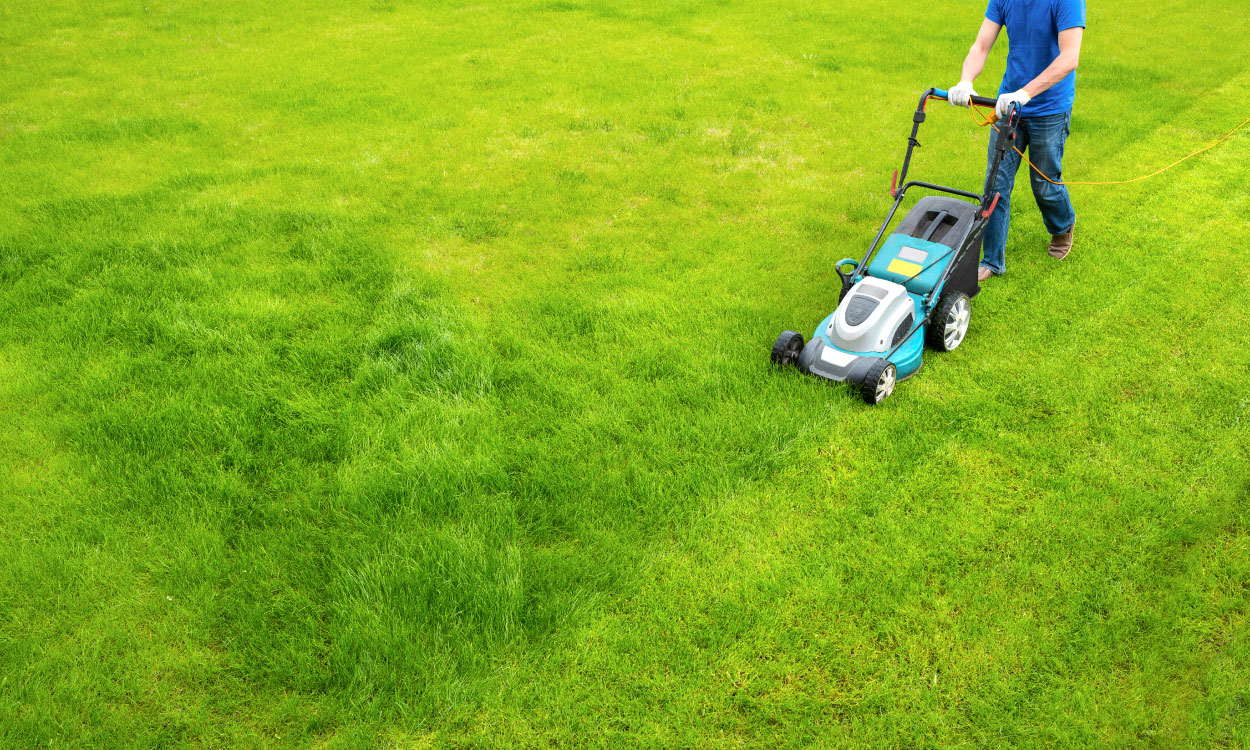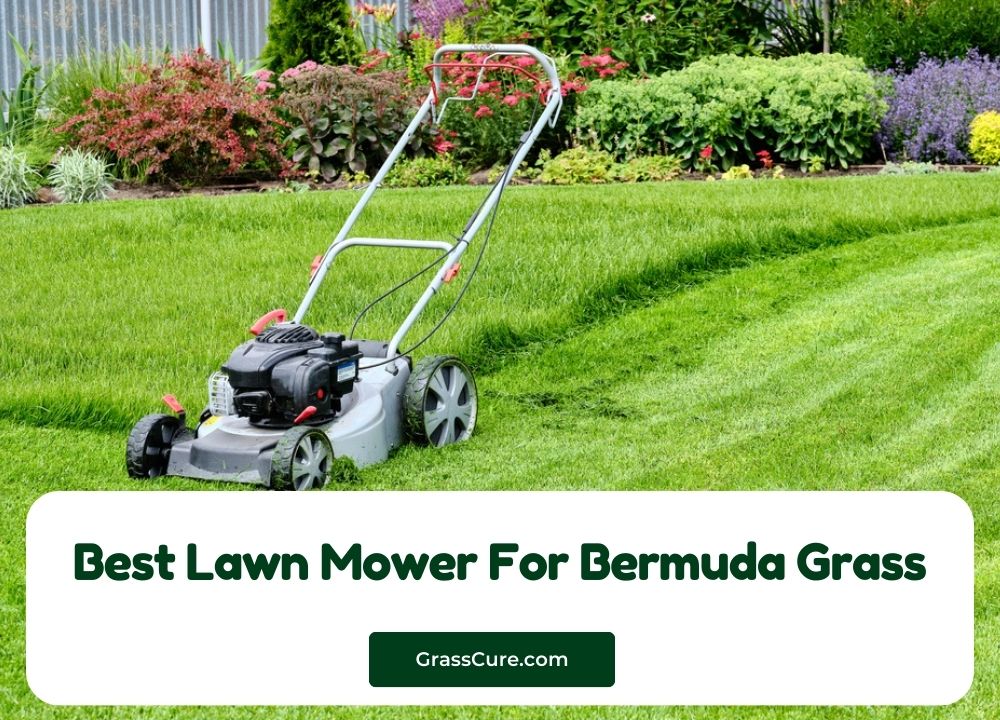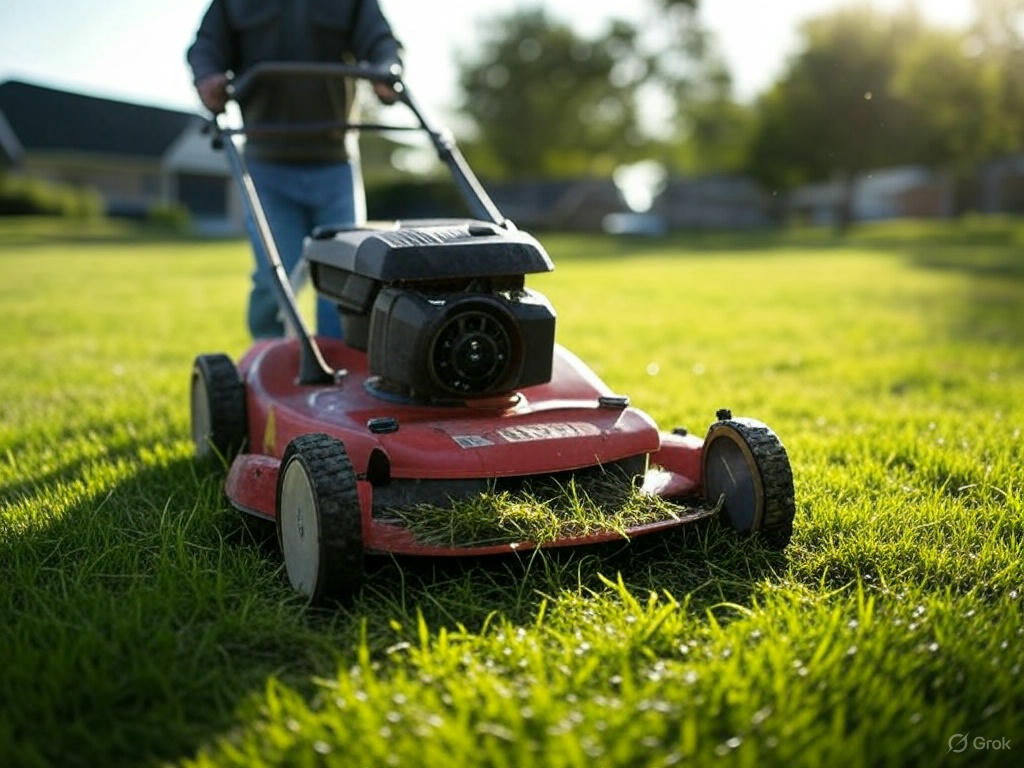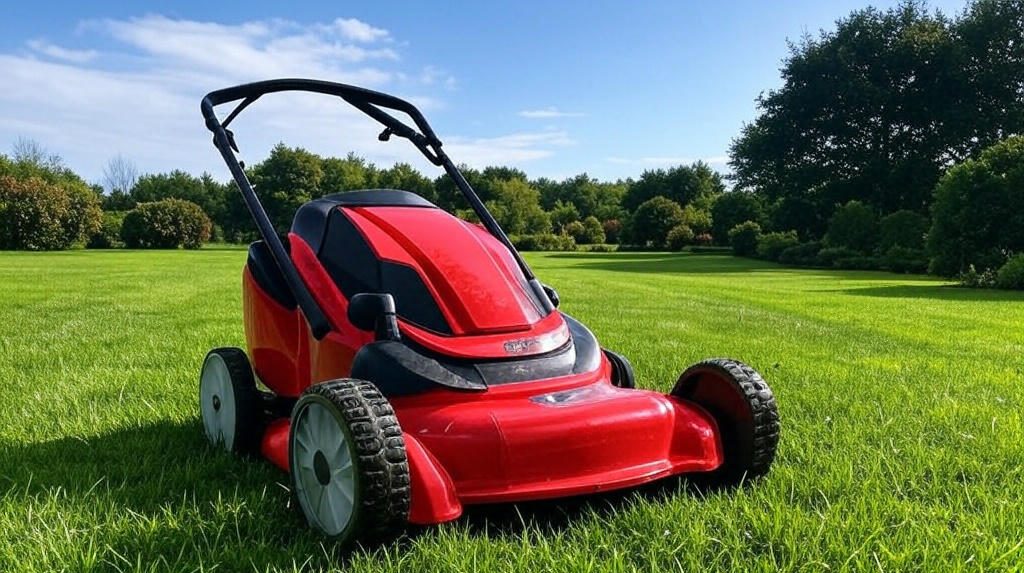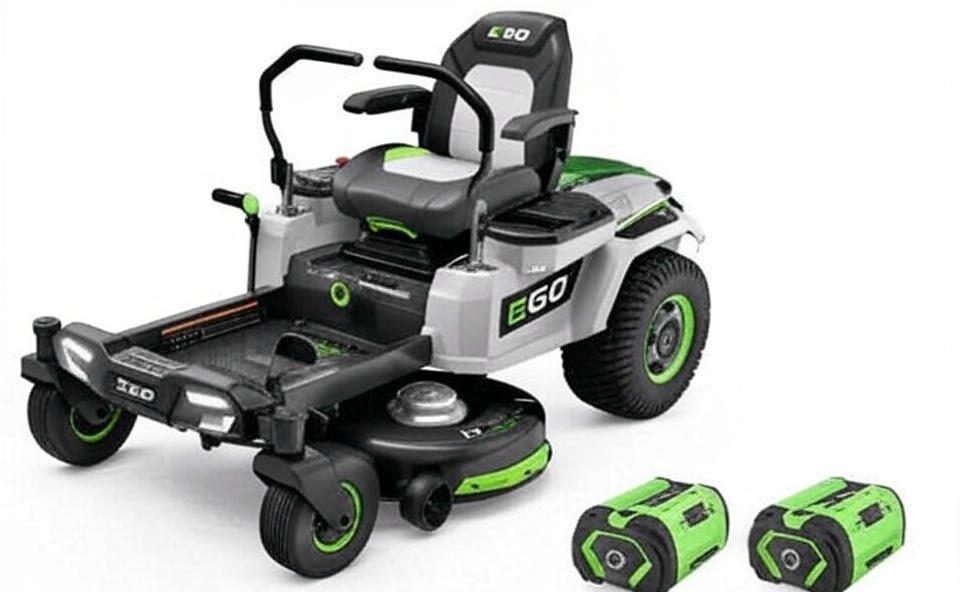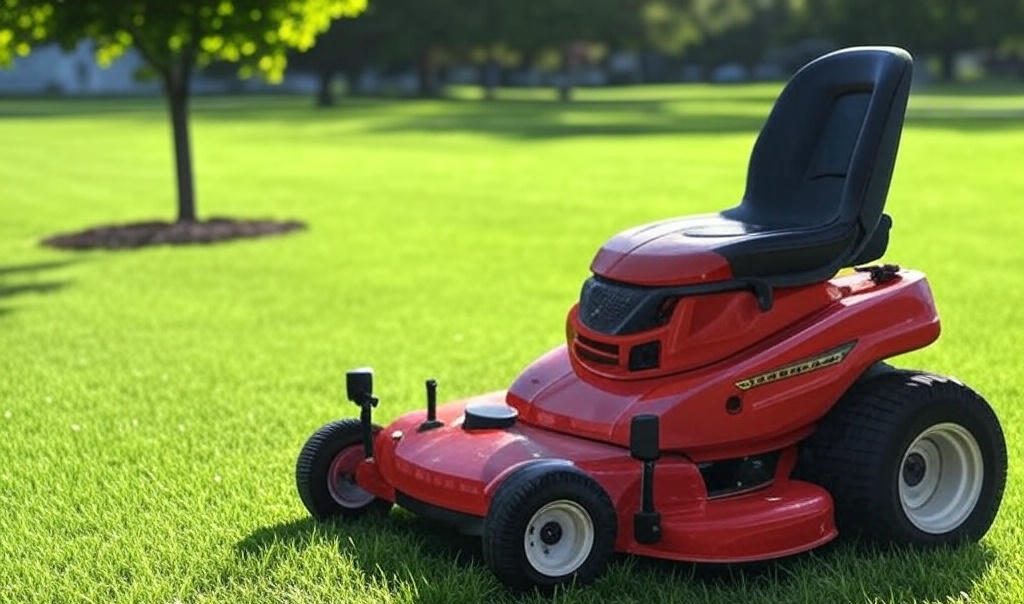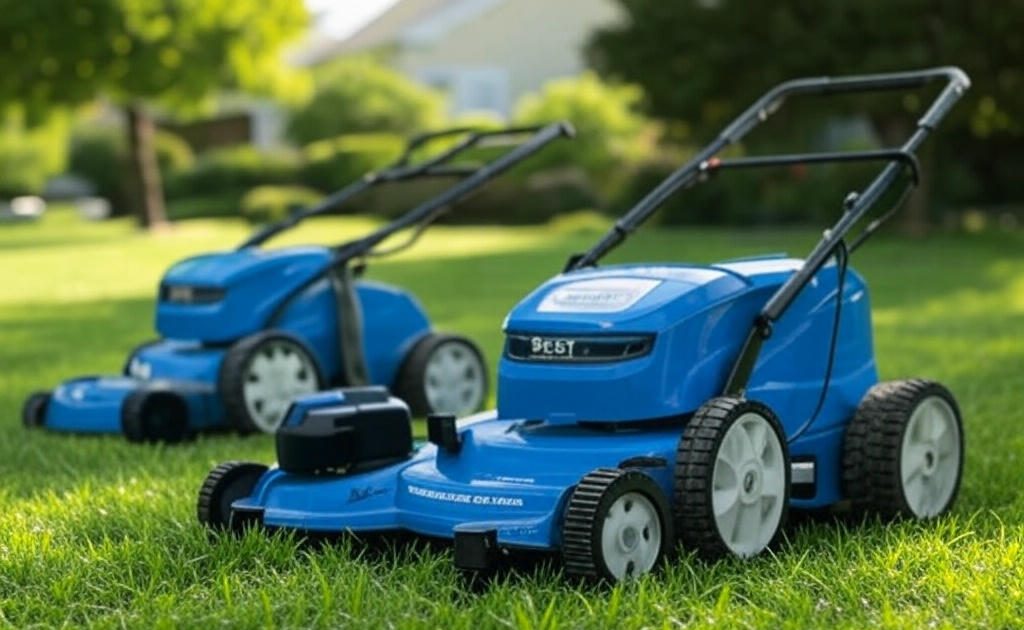You’ve planned your weekend around getting the yard in shape, but then the rain hits. Now, your lawn is wet, and you’re left wondering, can you use your electric lawn mower on wet grass?
This simple question might seem trivial, but the answer can impact your lawn’s health and your mower’s longevity. More importantly, it can affect your safety. Imagine the peace of mind knowing you’re making the right choice, avoiding costly damages or accidents.
As you read on, you’ll uncover not just the answer, but practical tips that will transform your mowing routine, rain or shine. Get ready to discover insights that could save you time and money while keeping your lawn pristine.
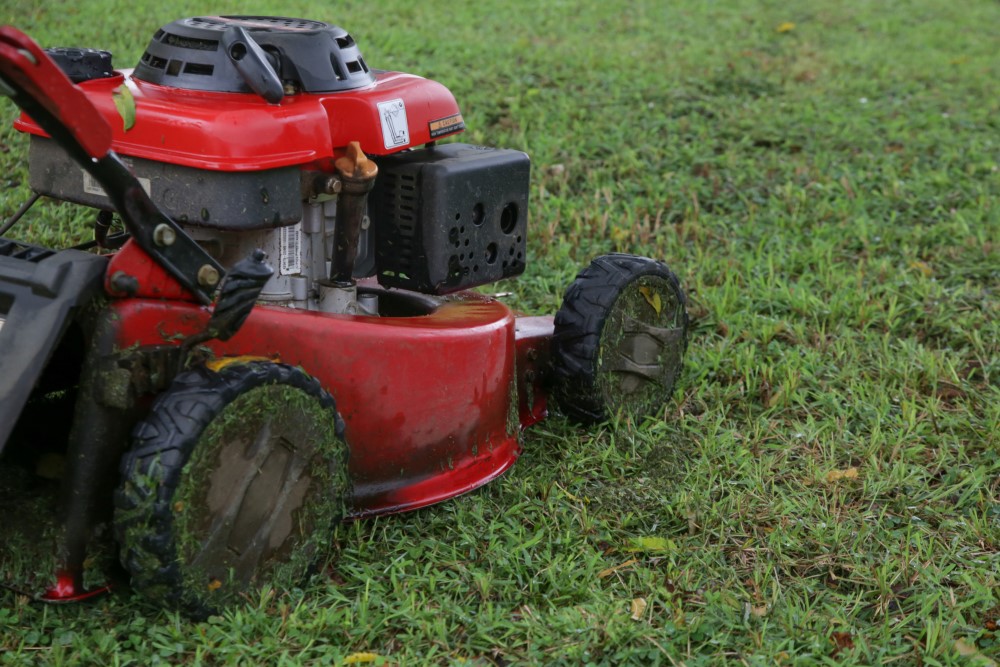
Credit: zenaslegalpractice.com
Contents
Safety Concerns
Using an electric lawn mower on wet grass might seem convenient, especially after an unexpected rain shower. However, there are several safety concerns that you should consider before plugging in and powering up. While electric mowers are generally safe, wet conditions can pose unique challenges that can affect both your safety and the mower’s performance.
Risk Of Electric Shock
One of the most significant risks of using an electric lawn mower on wet grass is the potential for electric shock. Water is a conductor of electricity, and when your mower comes into contact with wet grass, there’s a chance that moisture could seep into the electrical components. This can lead to dangerous situations, especially if there are exposed wires or a faulty insulation.
Imagine mowing your lawn only to feel a sudden jolt because water has compromised your mower’s safety features. To prevent this, always check your mower for any signs of damage before use. Consider waiting until the grass is dry or using a cordless model that reduces the risk altogether.
Impact On Mower Functionality
Wet grass can severely impact the functionality of your electric mower. When the grass is wet, it tends to clump together, causing the mower blades to work harder and potentially jam. This can lead to motor strain and even damage, reducing your mower’s lifespan.
Have you ever had to stop halfway through mowing because the blades got clogged? It’s frustrating, right? To avoid this, make sure to clean your mower regularly and consider adjusting the blade height to prevent too much grass from sticking.
Environmental Hazards
Wet grass can also pose environmental hazards when using an electric mower. Slippery surfaces increase the risk of physical injury, such as slipping and falling. Moreover, wet conditions can make it challenging to achieve an even cut, potentially damaging the grass and affecting its growth.
Think about the last time you slipped on wet grass while mowing. Wouldn’t you prefer to avoid that risk altogether? Consider investing in sturdy footwear with good traction and wait for drier conditions for a more precise and safer mowing experience.
So, the next time you’re tempted to mow your lawn after a rain, ask yourself: is it worth the risk? By addressing these safety concerns, you can ensure both your safety and the longevity of your mower.

Credit: www.gntos.org
Performance Issues
Electric lawn mowers provide a cleaner, quieter way to maintain lawns. But wet grass can challenge their performance. This can lead to reduced cutting efficiency, grass clumping, and motor strain. Each issue affects how your mower handles wet grass.
Reduced Cutting Efficiency
Wet grass is heavier and harder to cut. Electric mowers struggle to slice through it neatly. This results in uneven cuts. The blades may miss patches, leaving the lawn looking messy. Sharp blades help, but wetness makes cutting tough.
Potential For Grass Clumping
Wet grass tends to stick together. This forms clumps that clog the mower’s deck. Clumps stop the blades from cutting effectively. You may need frequent stops to clear them. This slows down your mowing time.
Motor Strain
Wet grass can put extra pressure on the mower’s motor. The motor works harder to move through the heavy grass. This strain can lead to overheating. Over time, it can wear down the motor faster. Proper care and breaks can reduce motor strain.
Maintenance Challenges
Electric lawn mowers face challenges on wet grass. Wet conditions can cause electrical hazards and damage the mower. Ensuring safety and proper maintenance is crucial.
Maintaining an electric lawn mower can be tricky, especially if you’re using it on wet grass. Though it’s tempting to mow after a rainfall, doing so can lead to numerous maintenance challenges. Understanding these challenges is crucial to keeping your electric mower in top condition and extending its lifespan. Let’s dive into some of the maintenance issues you might face and how to tackle them effectively.
Corrosion And Rust
Wet grass can stick to the metal parts of your mower, leading to corrosion and rust over time. This is particularly problematic for the blades and the underside of the mower deck. To prevent this, clean your mower thoroughly after each use in wet conditions. Consider applying a rust-resistant coating to metal parts. This simple step can save you from costly repairs later. Have you ever had to replace a rusted-out mower part? It’s not fun, and it’s easily avoidable.
Blade Wear And Tear
Mowing wet grass can dull your blades faster than you might expect. Wet grass is heavier and denser, which makes the blades work harder. This increased friction can lead to quicker wear and tear. To mitigate this, sharpen your blades more frequently during wet seasons. A sharp blade will cut grass more efficiently and reduce stress on the motor. Have you noticed your mower struggling? It might be time for a blade check.
Cleaning And Storage Tips
Proper cleaning and storage can make a big difference in maintaining your electric mower. After mowing wet grass, unplug the mower and clean the blades and undercarriage. A simple garden hose can do wonders, but make sure to dry everything thoroughly afterwards. Store your mower in a dry, sheltered place. Moisture can seep in and affect the electrical components. Have you ever considered using a dehumidifier in your storage area? It’s a small investment for peace of mind. By addressing these challenges, you can enjoy a well-maintained electric mower, even when mowing wet grass. What will you do differently with your mower maintenance routine?
Alternatives And Solutions
Using an electric lawn mower on wet grass can be tricky. Wet conditions can make mowing difficult and even dangerous. Fortunately, there are alternatives and solutions to tackle this challenge effectively. By considering timing, manual tools, and best practices, you can maintain a healthy lawn even when the weather is not cooperating.
Timing The Mow
Choose the right time to mow your lawn. Wet grass is harder to cut and can clog your mower. Wait for the grass to dry. Early afternoon is often ideal. The sun has dried the morning dew, making mowing easier. Avoid mowing after rain or heavy watering.
Using Manual Tools
Manual tools can be a great alternative to electric mowers. Use a reel mower for small areas. It’s simple and effective for wet grass. A scythe can handle larger patches. These tools work well and avoid electrical risks. Manual tools require more effort but can be rewarding.
Lawn Care Best Practices
Keep your lawn healthy with regular care. Fertilize during dry periods to strengthen grass. Aerate the soil to improve drainage. Trim grass to a manageable height. Remove excess leaves and debris. This prevents mold and promotes growth. Use mulch to retain moisture when it’s dry. Regular maintenance keeps your lawn looking great all year.
Expert Recommendations
Electric lawn mowers can be risky on wet grass. They might slip or cause electric issues. Experts recommend waiting for dry conditions to ensure safety and efficiency.
Electric lawn mowers offer convenience and eco-friendliness. Yet, their use on wet grass raises questions. Experts provide crucial insights to ensure safe and efficient operation. Understanding guidelines and safety measures is key. Below, we delve into expert recommendations for using electric mowers on wet lawns.
Manufacturer Guidelines
Manufacturers often advise against mowing wet grass. Water can damage electric components. Always check the user manual. Follow specific instructions for your model. Some mowers may handle damp conditions better. Yet, most risk malfunction if used on wet surfaces. Ensure your mower is designed for wet use before proceeding.
Professional Lawn Care Advice
Lawn care experts often recommend waiting for dry conditions. Wet grass clumps easily, affecting mower performance. Clippings can block the mower deck. This can lead to uneven cutting. Professionals suggest mowing when grass is dry. This ensures a clean, smooth cut. It also reduces strain on your mower.
Safety Precautions
Safety is paramount when mowing. Wet grass increases slip risks. Always wear non-slip shoes. Ensure your mower’s power cord is dry. Water and electricity are a dangerous mix. Inspect your equipment for any damage before use. Avoid mowing on steep slopes when wet. This prevents accidents and injuries.

Credit: www.gntos.org
Frequently Asked Questions
Is It Safe To Mow Wet Grass With Electric Mower?
Mowing wet grass with an electric mower is not recommended. Wet conditions increase the risk of electric shock and damage the mower. Wet grass can clog the mower and reduce its efficiency. Always prioritize safety and wait for the grass to dry before mowing.
Can Wet Grass Damage Electric Mowers?
Yes, wet grass can damage electric mowers. Moisture can seep into electrical components, causing malfunctions. Wet grass clippings can also clog the mower, affecting its performance. It’s best to mow when the grass is dry to prevent these issues and prolong the life of your mower.
What Happens If You Mow Wet Grass?
Mowing wet grass can lead to uneven cuts and clumping. Wet grass tends to stick together, causing clumps that can clog your mower. This may result in an uneven lawn appearance and potential damage to your mower. It’s advisable to wait for the grass to dry before mowing for best results.
Why Is Mowing Wet Grass Not Recommended?
Mowing wet grass is not recommended due to safety and performance concerns. Wet conditions increase the risk of slipping and electric shock. Wet grass can also clog the mower and cause uneven cuts. For best results and safety, mow when the grass is dry.
Conclusion
Using an electric lawn mower on wet grass isn’t ideal. Wet grass clumps and sticks. This can clog the mower. It’s also slippery, increasing accident risks. Always prioritize safety. Wait until the grass dries. This ensures a cleaner cut. It also extends your mower’s lifespan.
Regular maintenance is key. Clean the blades and check the mower. Proper care leads to better performance. Keep these tips in mind. Your lawn will look great. Plus, mowing will be hassle-free. Enjoy a neat and tidy yard.
